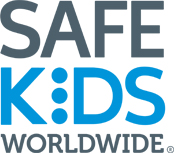The Call of the Wild

Camping season is in full gear and America’s parks and wilderness areas are filled with city dwellers trying to get some peace, quiet and fresh air. There is nothing more relaxing than lying in a hammock by a clear lake or watching wildlife on a remote trail. Camping is also a great way to teach kids about nature and can provide bonding time away from the glare of electronic devices and the noise of our everyday lives.
However, it’s essential to be prepared for all of the surprises that Mother Nature can throw at us when we decide to rough it for a few days. I have been lucky enough to camp and backpack all over the United States and here are a few tips on how to make your trip not just safe, but really fun.
- Plan ahead. Pick a destination well before you’re ready to head out. Make sure you make reservations if you need them. Believe me, you don’t want to be stuck driving around at 10 at night on Labor Day weekend looking for an open camping spot.
- Have a real first aid kit. Don’t throw a box of band aids and a bottle of sunscreen in the glove box and call it good. You probably won’t need a tourniquet, but it is important to have supplies for the minor bumps and bruises kids get running around outside. The Red Cross has a great list of what should be in your kit, and you can buy a prepackaged kit at any camping store. Don’t forget to include any regular medication that you or your kids take.
- Hydrate, hydrate, hydrate. Being active in the heat means our bodies need more water. Make sure your kids drink plenty before, during and after activity. Bring everyone a water bottle and make sure they have it full and with them all the time. Even a short hike can dehydrate a little camper so make sure they get plenty to drink.
- Prepare for the weather. Check the weather report and always bring rain gear. Additionally, a blue tarp and some rope will protect your campsite from rain and leave you dry and comfy. There is really nothing worse than sleeping in a cold, wet tent except sleeping in a car full of cranky, wet kids.
- Always carry the 10 essentials for hiking. This includes stuff like a map and matches, as well as rain gear and water. If you hike at all, learn to use a compass. You can do this in your own neighborhood and it is a fun activity for kids. It is possible to get lost even on short hikes and you don’t want to get stuck a mile from your campground after dark because you can’t find your way back in time.
- Keep an eye on kids around water. Swimming in a cool lake or a mountain stream can be fun, but these environments are more unpredictable than the local swimming pool. Kids can get caught in a fast-moving current in seconds, so they should never swim alone. Check out our swimming safety tips for the essential information you need.
- Be flexible. This is actually the best way to have a really fun trip. Be willing to take the scenic route or try out the slightly more difficult trail. Buy some good local food for your camp meal. Try out fishing or bird watching. One of the greatest things about going into the wilderness is that it gets us out of our routine, so allow yourself a little spontaneity.
